Best 2023 Albums (So Far): Lana Del Rey, Boygenius, Karol G, Ice Spice
- Oops!Something went wrong.Please try again later.
- Oops!Something went wrong.Please try again later.
- Oops!Something went wrong.Please try again later.
- Oops!Something went wrong.Please try again later.
- Oops!Something went wrong.Please try again later.
- Oops!Something went wrong.Please try again later.
- Oops!Something went wrong.Please try again later.
- Oops!Something went wrong.Please try again later.
- Oops!Something went wrong.Please try again later.
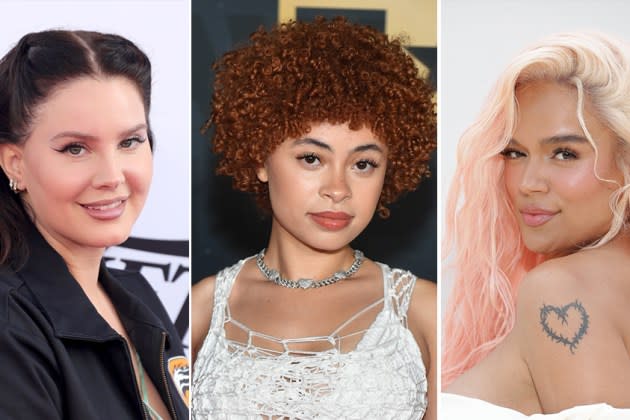
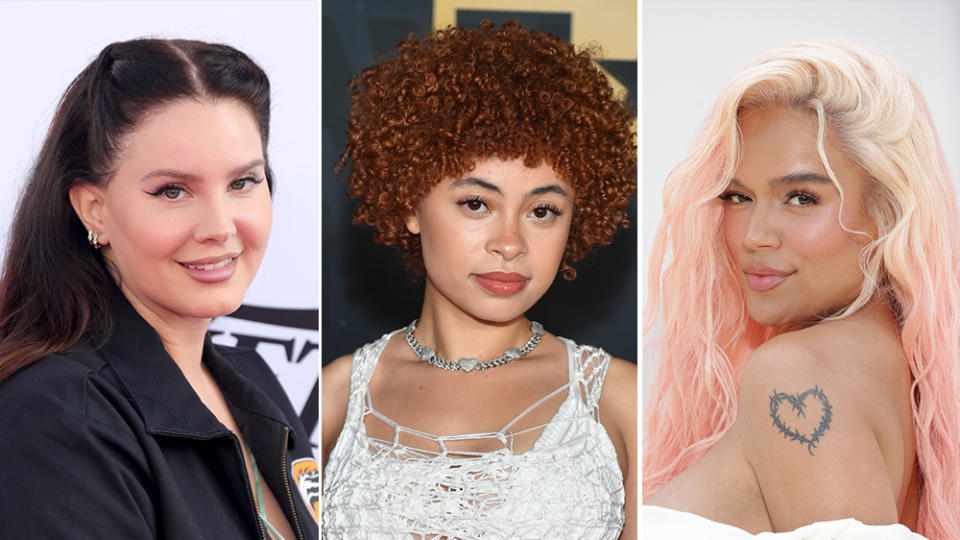
From Ice Spice making a splash at the beginning of her career to Paul Simon pushing the envelope at the other end of his, the year in music has already brought riches galore, even before we get into what is likely to be a superstar-strewn back half. The reteaming of part-time supergroup Boygenius brought strength in numbers; Karol G, Kali Uchis and Tainy pushed the Latin revolution ever forward; Lana Del Rey mesmerized fans even more than before with true confessions; Kelela and Raye raised the flag for invigorating R&B; Jason Isbell and Brandy Clark held down the classic storytelling fort; and Sam Smith and Christine & the Queens didn’t just represent for gender-fluid artists but for great nonconformers generally.
More from Variety
The Best Music Books of 2023: Lou Reed, Britney Spears, Sly Stone, Girl Groups and More
Elon Musk Biographer Walter Isaacson Thought It Was 'Idiotic' for Billionaire to Buy Twitter
Among the dozens, even hundreds, of albums we’ve fallen for this year, here are some unranked picks as selected by executive music editor Jem Aswad, senior writer and chief music critic Chris Willman and associate music editor Thania Garcia — all attesting that, in the realm of music, it’s anything but a cruel summer.
Boygenius, ‘The Record’
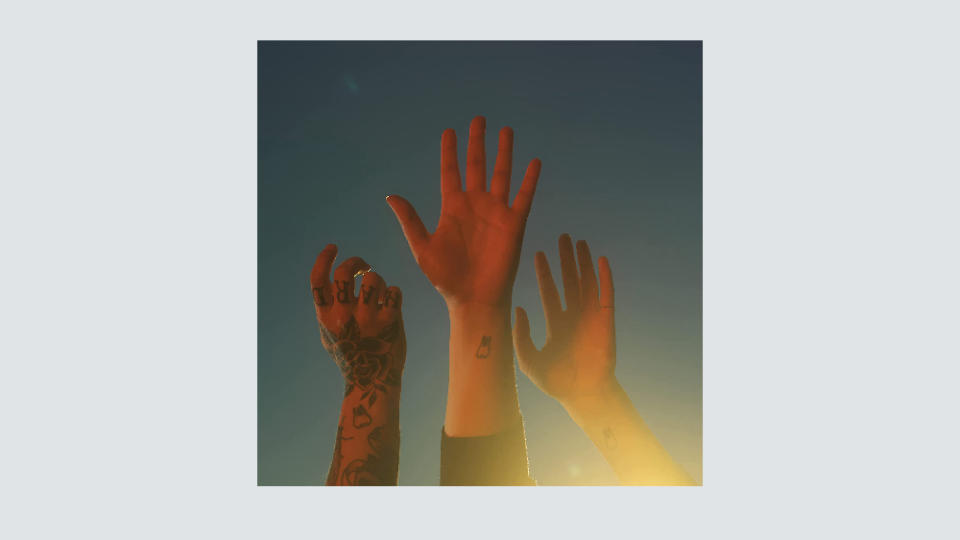
Maybe it’s an unfair advantage, when three superior singer-songwriters team up and each bring their A-game instead of selections from the discard pile to a supposed side project. If that’s so, we could only wish that other contemporary greats would similarly congregate as supergroups and “cheat” their way to the top of our best albums lists. There’s hardly anything among the 12 tracks on Boygenius’ first full-length collaboration that doesn’t stand with the very best stuff Phoebe Bridgers, Julien Baker and Lucy Dacus have done on their own. And that holds true whether it’s the songs that most feel like individual excursions into a trio member’s singular heart With Very Special Guest Harmonizers (Bridgers’ “Letter to an Old Poet,” Baker’s “Anti-Curse,” Dacus’ “True Blue”) or the truest full-band collabs. Sings Dacus: “When you don’t know who you are, you fuck around and find out.” These three very much already knew who they were, to the extent that any twentysomething prodigies do. But thank heaven for the effin’ around that led to the only album of 2023 that feels like a lawfully wedded union of the Breeders and Crosby, Stills and Nash. —Chris Willman
Kali Uchis, ‘Red Moon in Venus’
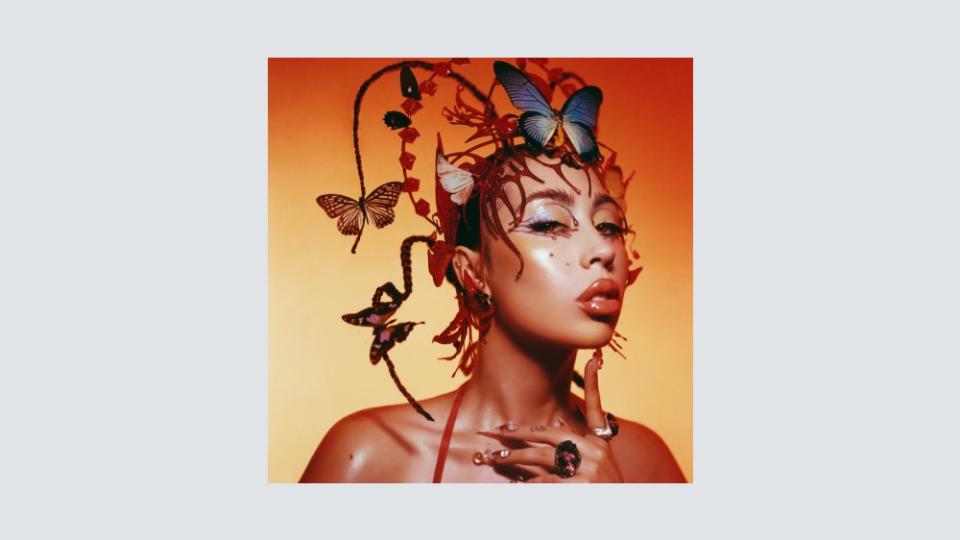
This Colombian-American singer’s third album finds all of the elements of her past records — R&B, dance, Latin and hip-hop — fusing into a lush, lavish, luscious hot tub of an album, conjuring visions of plush feather beds, fluffy pillows and bubble baths, although the lyrics will occasionally jolt the listener out of their chill (“One thing about karma, that bitch will find you”). Her voice might sound sweet, but Kali Uchis does not play. While her previous album, “Sin Miedo,” was primarily sung in Spanish with occasional verses in English and a big contribution from superstar Latin producer Tainy, this one flips that lyrical formula and brings in a battery of collaborators: Omar Apollo, Summer Walker and Don Toliver each guest on a song apiece, and there are a dozen-odd different producers. But despite that polyglot team, clearly Uchis herself is setting the tone and calling the shots. There are plenty of references here — “Blue” is the best Sade song since the last Sade album (complete with a “Smooth Operator” sax in the distance), and “Love Between” has a ‘70s Philly soul vibe that recalls Silk Sonic’s retro fetish — but those are passing glances. Cliché as it sounds, despite the kick in the lyrics, “Red Moon in Venus” is a record for dimming the lights, lighting the candles and leaving on “repeat.” —Jem Aswad
Lana Del Rey, ‘Did You Know That There’s a Tunnel Under Ocean Blvd’
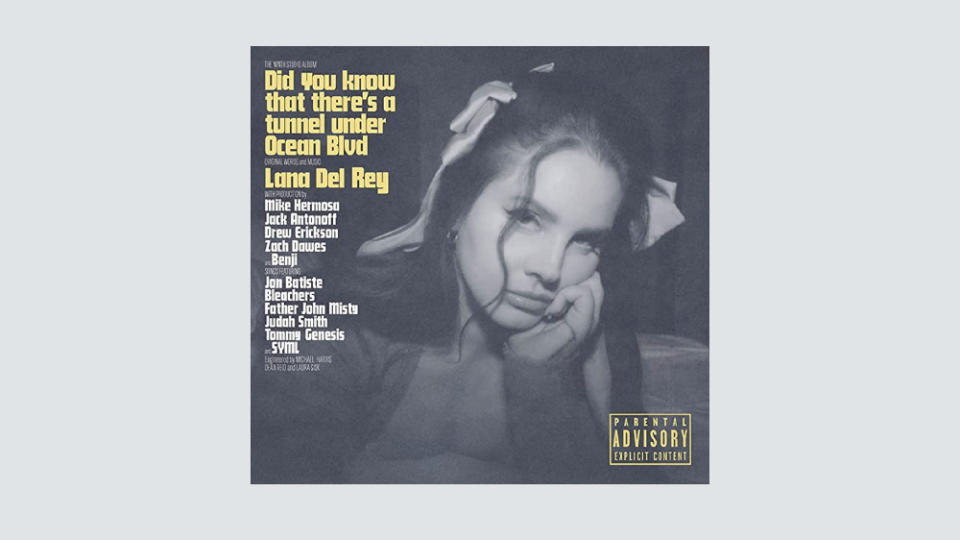
There’s dynamite in that tunnel. So don’t get too lulled by the languid rhythms with which the first two-thirds or so of “Did You Know That There’s a Tunnel Under Ocean Blvd” proceed; lyrically, it’s some of Del Rey’s most quietly explosive writing ever, even before the musical pace picks up in the final stretch. Is this her masterpiece to date? It might be, once you come up from under the density of 16 autobiographically detail-filled songs that require nearly a full internet’s worth of Cliffnotes to fully unpack. Del Rey doesn’t pretend to be writing about the universal “we” — not with so many overt callouts to her father, grandfather, uncle and mother (there’s barely any room to address exes in here, with so many family relationships to deal with first). And yet she’s always dealing with the biggest stuff of life as well as sweating the small stuff: Death. Mental illness. God. Sexual shame. Sexual liberation. The possibilities of intimacy. Pottery. (Don’t worry, it’s metaphoric.) Did we mention death already? There’s a lot of rough stuff here, but the final effect is exhilarating as well as occasionally devastating. With this release, Lana Del Rey, accused for so long of striking a pose, may ironically have established herself as the most naked, least affected pop superstar we have right now. —Willman
Karol G, ‘Mañana Será Bonito’
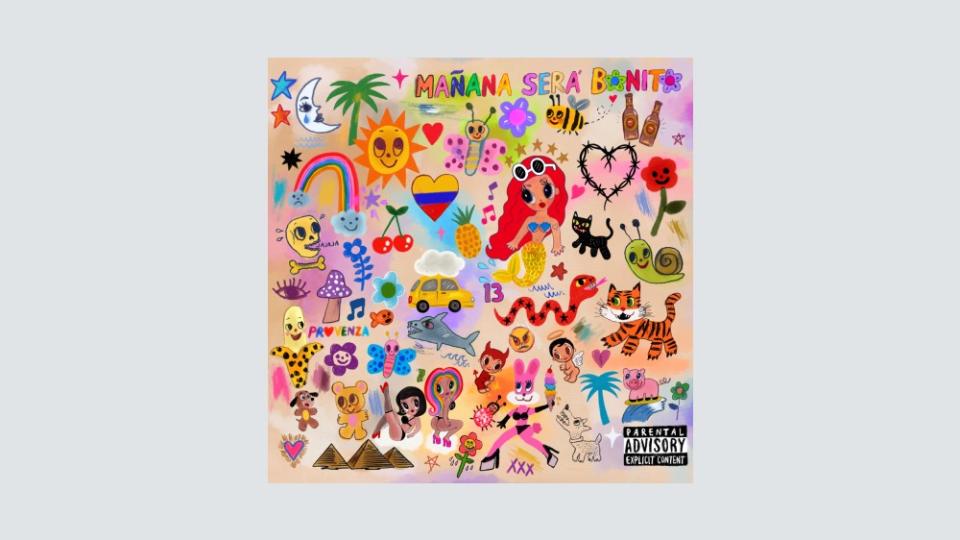
An album created as a means of self-comfort, “Mañana Será Bonito” is Karol’s most open and nuanced release to date. Its lead single, “Provenza,” has become an anthem for the Colombian neighborhood that inspired it, and the video is a fantasy any woman has had: endless summer days on an island with no men or worries in sight. That motif rules much of the record: Karol’s honeyed vocals are just as strong as they are delicate in songs about going out with your besties and leaving a toxic ex. Musically, the album finds her expanding her range beyond urbano into pop, música Mexicana, rock and EDM, with assists from Shakira and Romeo Santos. —Thania Garcia
Ice Spice, ‘Like…?’
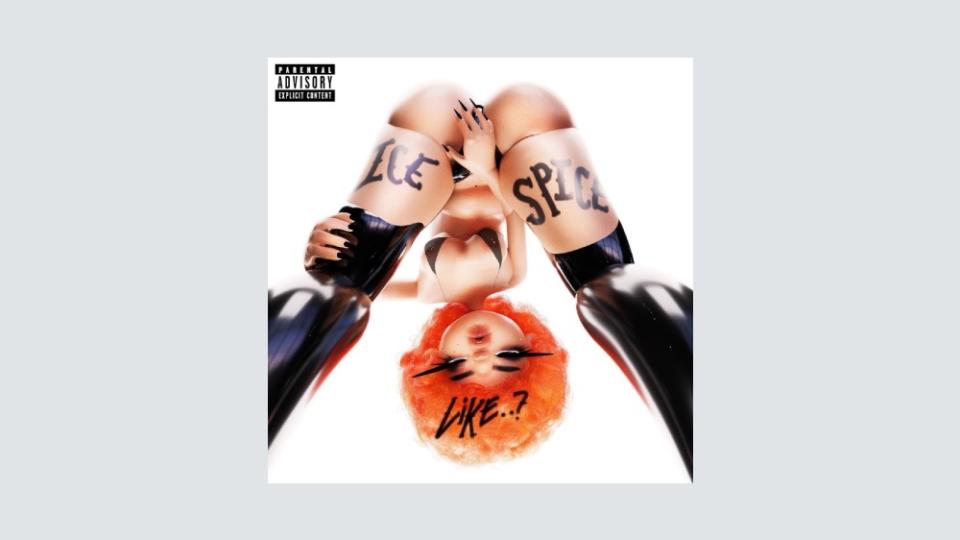
This fiery Bronx-born MC is well on her way to becoming the breakout artist of 2023. After scoring a viral hit with her 2022 single “Munch (Feelin U),” the drill rapper has delivered a debut EP that clocks in at just 16 minutes long — a reflection of meme culture, sure, but its seven songs have more flavor than countless much longer albums released this year. On “Princess Diana,” Ice claims her fan-given title of “The People’s Princess,” and on “Gangsta Boo” she samples a Diddy classic with guest verses from Lil Tjay. Her launch into pop stardom has been in tandem with producer RiotUSA, who also has landed five Billboard Hot 100 hits. Sure, her big looks with Taylor Swift and Nicki Minaj have helped her star rise — but she’s helped theirs just as much, and the ellipse at the end of this EP’s title telegraphs its approach: to leave people wanting more. —Garcia
Jason Isbell and the 400 Unit, ‘Weathervanes’
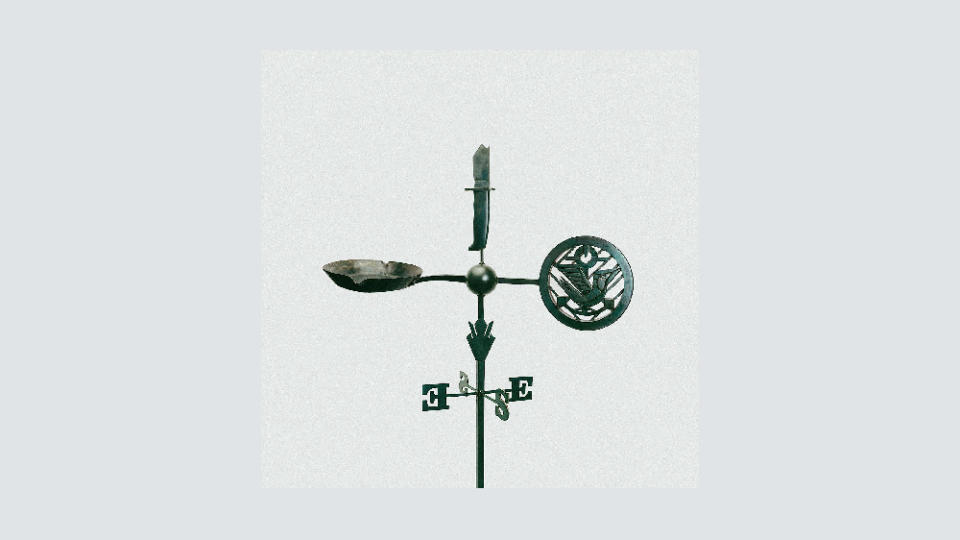
No one spins a narrative web in a few short verses and a chorus today quite like Isbell. He’s kind of our modern-day Randy Newman, except in reverse, when it comes to the twist in each song, because the twist is always radical empathy. It’s hard to resist employing the phrase “he’s done it again” with each successive album, but… he’s done it again, albeit with a slightly different sonic tone to the sound, due to his self-producing this time instead of employing Dave Cobb. Isbell has said his approach was differentiated by putting the 400 Unit more upfront, rather than Cobb’s vocals-first approach — and the band does sound great, but in truth, it’s the storytelling that would stand front and center even if you ran his music through a hundred Atmos channels. Could there be a better song opening than: “We’ll take the copper from the work site/Meet me there at midnight/They ain’t got a camera or a guard/Write my own prescription/If I can’t get a fix, son/Shit’s about to get real hard”? Copper theft, opiate addiction, a woman who’s had enough … maybe he thought his old Drive-By Truckers songs were too uplifting. But in all seriousness, even Isbell’s darker songs here are deeply infused with hope — that, in shining a light on how and why shit gets hard, we can still always take a sad song and make it better. —Willman
Sam Smith, ‘Gloria’
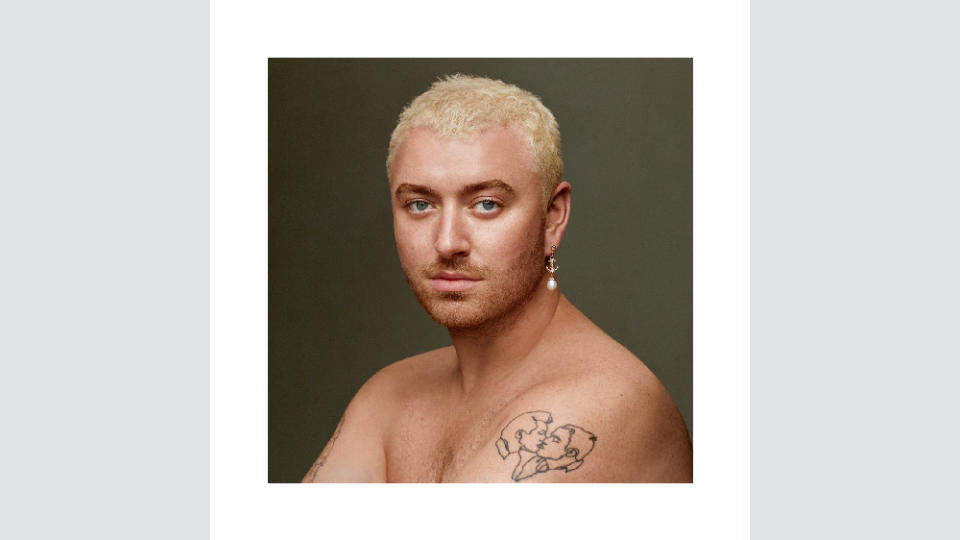
With an uncommonly powerful voice and a debut album that garnered four Grammys, Sam Smith easily could have stayed in the same lane for their entire career — beautifully sung songs about heartbreak and longing (and crying, lots of crying) in a smooth, sometimes slick pop-R&B vein with a dazzling array of vocal pyrotechnics. But Smith’s fourth album, “Gloria” is not that at all — it’s a wild night out that’s tinged with adventure and some danger, but still gets you home safely. More than a new chapter, it’s a musical rebirth that completely redefines Smith as an artist: there are smooth and commercial songs along with ballads, slow jams, dancefloor anthems and the roaring “Unholy” — the most unconventional and sexually loaded song to top the Billboard Hot 100 since “WAP.” Most of all, it has an adventurousness that was only hinted at before. “Oddly, it feels like my first-ever record,” Smith said when announcing the album last fall. “And it feels like a coming of age.” With songs that are both sacred and profane, with R&B and pop and disco and chorales, “Gloria” is all of that and more. —Aswad
Caroline Polachek, ‘Desire I Want to Turn Into You’
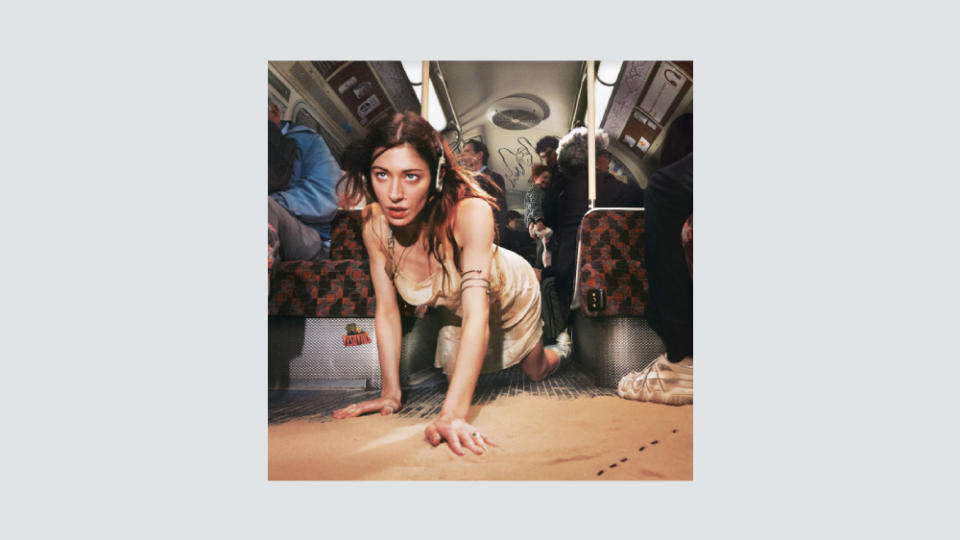
After years as the frontperson of Chairlift, a songwriter for Beyonce and Travis Scott, and several experimental projects under anything except her real name, Caroline Polachek is the rare artist who has seemingly become her true self more than 15 years into her career. In many ways it began when she started collaborating with fellow pop innovators Charli XCX and Danny L. Harle, rose with her 2019 album “Pang” and is hitting a new peak with this album. As the album’s title suggests, Polachek can be precious, and she sometimes veers into pretense or self-absorption. But she’s a deeply imaginative songwriter with a soaring, powerful voice that is always the centerpiece of her songs — a fusion of Kate Bush and Joni Mitchell that she’s unafraid to flex. “Desire” is clearly her vision all the way, a forceful and determined effort that vaults her to the front of adventurous pop music. —Aswad
Paul Simon, ‘Seven Psalms’
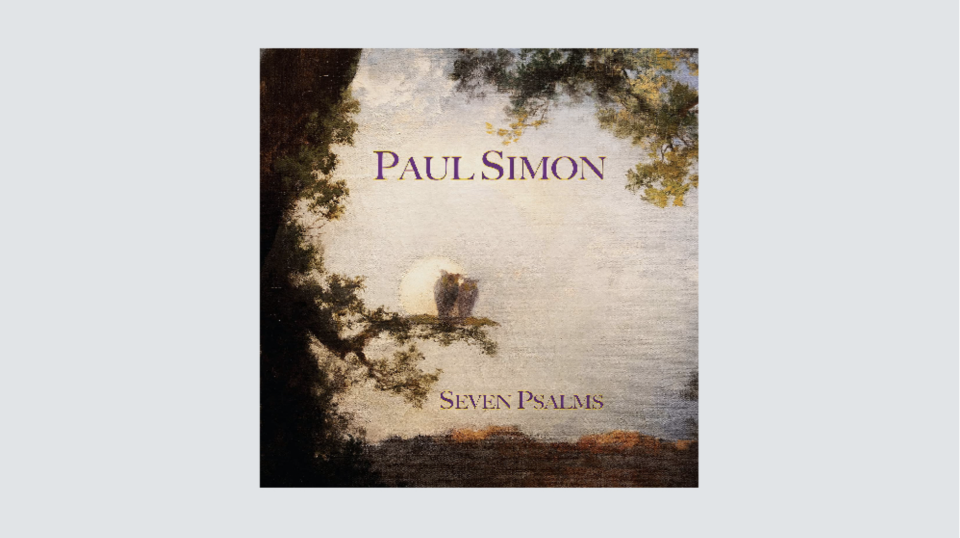
Still our poet laureate, after all these years. But the quietly stunning “Seven Psalms” is unlike any other Simon album in almost too many ways to list. On the most basic level, the extent to which the singer-songwriter wants you to experience it as a concept album is underscored by the fact that its seven distinct songs (plus two unbilled reprises) are being released digitally as one long track. Sorry, no shuffling, kids. And then there’s the extent to which it is concerned with the prospect of shuffling off this mortal coil, as Simon asks — as most honest artists in their 80s would — for whom the bell tolls. “Psalms” is a collection of songs with concerns in the past, present and (maybe) future, with Simon briefly looking back at some bridges burned; looking presently at how little the topical concerns that divide us seem to matter in the face of mortality; and looking ahead to see… well, to see if there is an ahead, as afterlife concerns remain as murky in old age as they did in youth. It’s a solemn album, in all the aforementioned regards, but also maybe an unexpectedly sweet one, too, as Simon lyrically invokes the value of a partner before actually bringing Edie Brickell’s voice in at the end. (That painting of two owls on the cover kind of augurs for the romantic gun that goes off in the third act here.) It’s a song cycle that’s in turn mysterious, deeply sobering, funny, agnostic, lovestruck, realistic about the end times, and still caught up in the days of miracle and wonder. —Willman
Amaarae, ‘Fountain Baby’
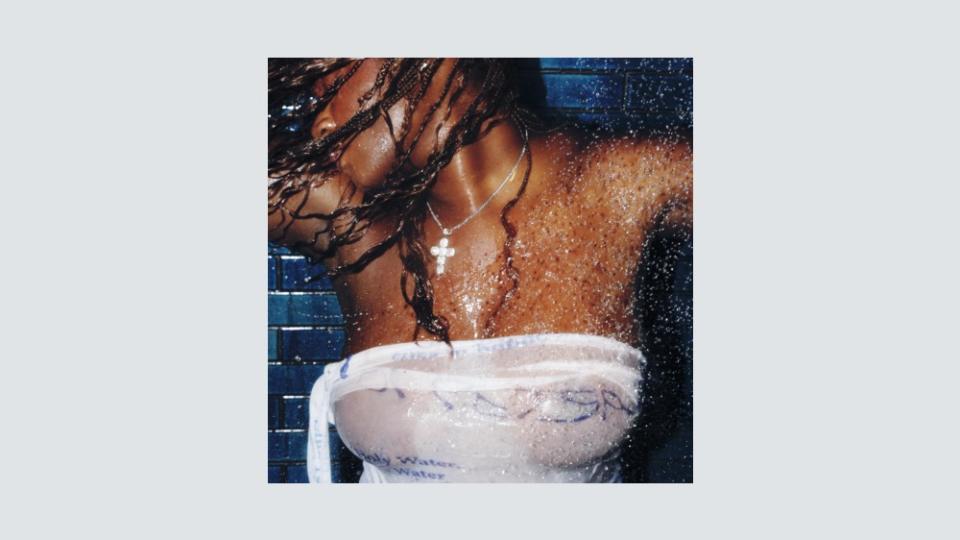
This Ghanaian-American singer’s sophomore album is a giant progression from her first, pushing the boundaries of Afro-pop into a wild mix of club bangers with bites of jangly guitar pop, punk, flamenco and even Japanese folk. She’s much more ambitious lyrically as well, defending her stance on broken gender norms while nonchalantly skipping between musical genres. While some influences loom — the album’s sleek production is reminiscent of Timbaland and the Neptunes (Pharrell has a writing credit on “Counterfeit”) — the songs range in theme and in style from pop-leaning tracks like “Sociopathic Dance Queen” and “Princess Going Digital” to the funk-inspired “Angels in Tibet.” —Garcia
Christine & the Queens, ‘Paranoïa, Angels, True Love’
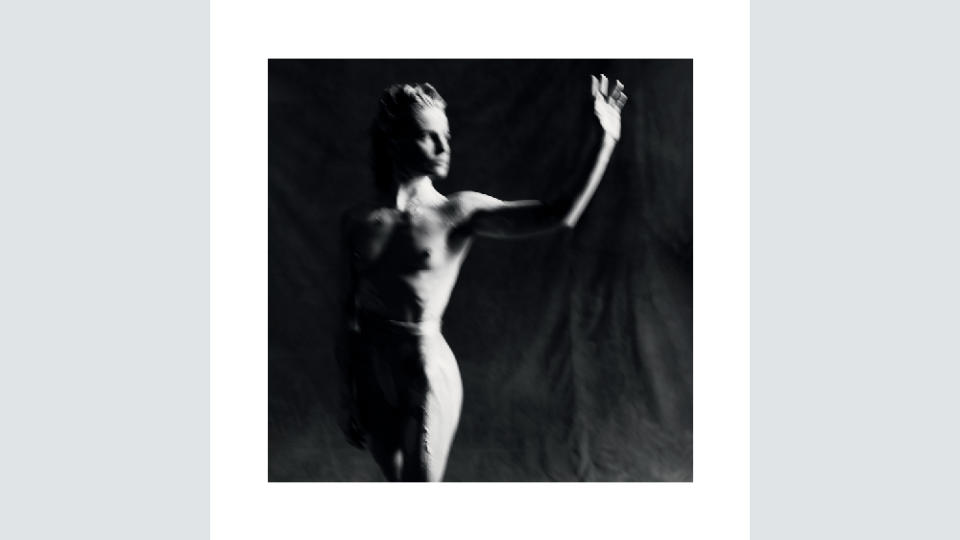
Like a sprawling mansion or national park, this strangely titled album with its demanding umlaut isn’t something you just casually visit: With 20 songs splayed over nearly 100 minutes, it’s less something you visit than explore. But although this experimental-pop masterpiece by the Christine in question (French singer-musician Héloïse Letissier, who now uses he/him pronouns) reveals itself slowly, there’s a bounty of stunning songs: gorgeous synth-pop in “True Love,” Portishead menace on the following “Let Me Touch You Once,” several beautiful ballads (“A Day in the Water,” “Flowery Days”), samples of both Pachelbel’s Canon (on the stunning “Full of Life”) and Emerson Lake & Palmer, and somehow it’s all of a piece. Loosely based on playwright Tony Kushner’s 1991 HIV-AIDS elegy “Angels in America,” it’s sequenced as a triple album that is almost instructing the listener not to try to digest all at once (indeed, the track with the most streams, “To Be Honest,” is no. 18).
While Christine and the Queens is technically a solo artist who has been making records for more than a decade, here the artist name is slightly inexact: in many ways it’s actually Christine and the Dean — longtime Weeknd/Kanye West/Beyonce collaborator Mike Dean. Their partnership was seemingly unlikely but has exceeded every expectation, with Chris’ pristine, soaring voice racing excitedly down the new sonic corridors opened by Dean’s deeply atmospheric keyboards and imaginative sense of rhythm. But he’s hardly the only major collaborator: Significantly, two film composers — horror-film virtuoso Joseph Bishara and Sarah Schachner — make their presence known on multiple songs, as do veteran drummer Darren King and Chris’ longtime collaborator Ash Workman. Yet there’s no question that the album’s centerpiece is Chris’ utterly stunning singing. Multitracked into celestial choirs that sound like angels approximately 70 percent of the time, his vocal work here is truly a performance for the ages. This album requires patience — even the number of songs is deceptive, as there are multiple interludes and songs within songs, like the gloriously uplifting second half of “Lick the Light Out.” But by the time it ends with a triumphant victory lap on the magnificent “Big Eye,” all you’ll want to do is go back in. —Aswad
Kelela, ‘Raven’
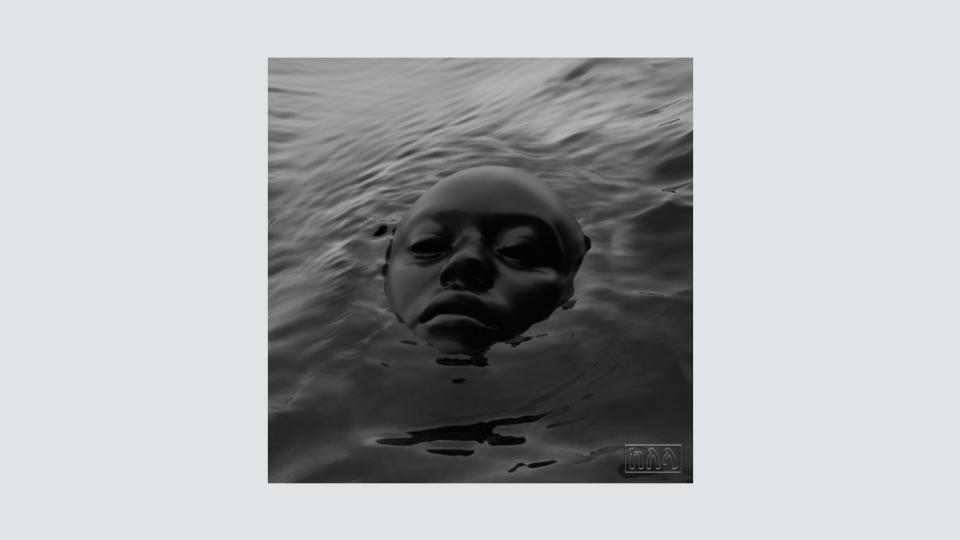
Kelela’s otherworldly “Raven” chronicles the pain and beauty of emotional catharsis — the kind that follows an inevitable, yet excruciatingly prolonged separation from an ex-lover. It’s a story that has been told countless times in all genres of music but “Raven” is a leader in its own avant-garde realm. R&B breaks and murmurs of drum ’n’ bass, garage and other elements of Black electronic music sustain her multi-layered harmonies, congregating to form Kelela’s first full-length album in more than five years. Up-tempo tracks make up the first half of the set, building up to the title track which sits at the heart of the album. Closers “Divorce,” “Enough for Love” and “Far Away” slowly unspool toward the end, creating a distinctly eerie yet consolatory release. —Garcia
Brandy Clark, ‘Brandy Clark’
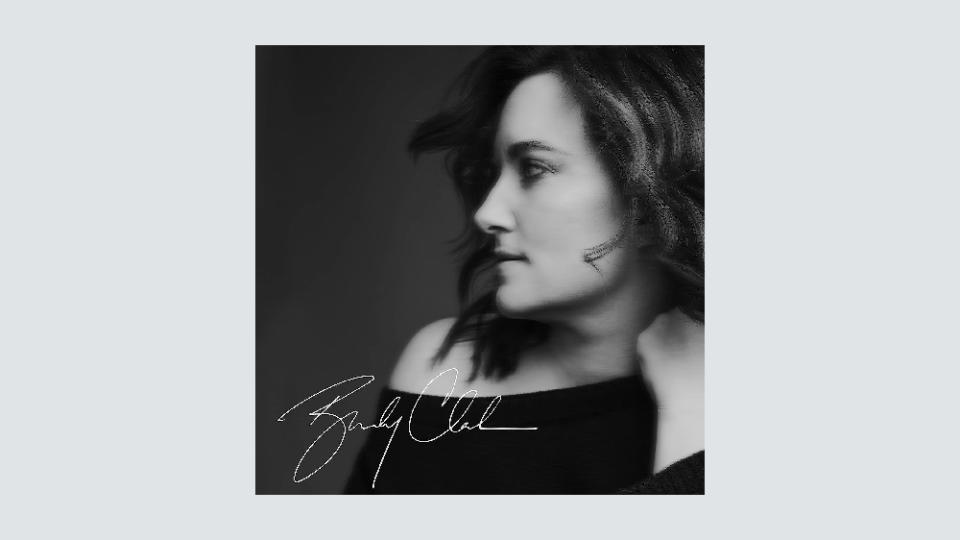
You might not hear a better original song this year than “Dear Insecurity,” Clark’s duet with Brandi Carlile, in which they both grapple with a third person in their triangle — self-doubt itself, anthropomorphized into a very mundane but deadly personal demon. If you’re crying by the end of it, it’s possible you’re clinically depressed; if you’re not crying by the end of it, you probably have narcissistic personality disorder. Congrats, either way! Actually, let’s put an asterisk on “…might not hear a better song,” because that could also apply to the tune that precedes it, “Buried.” But why get picky when you could listen to the entirety of Clark’s self-titled album, her fourth, and enjoy and/or get teary to more where those came from. Under the influence of Carlile (who produced), Clark has cut down on the trademark humor in her writing (for more of that, you can listen to her “Shucked” Broadway score), and yet there’s inherent wit, if not of the LOL kind, in a humanity-recognizing anthem like “She Smoked in the House.” And the regionally specific “Northwest” further clarifies that she’s one of America’s treasures. —Willman
Sigur Ros, ‘Atta’
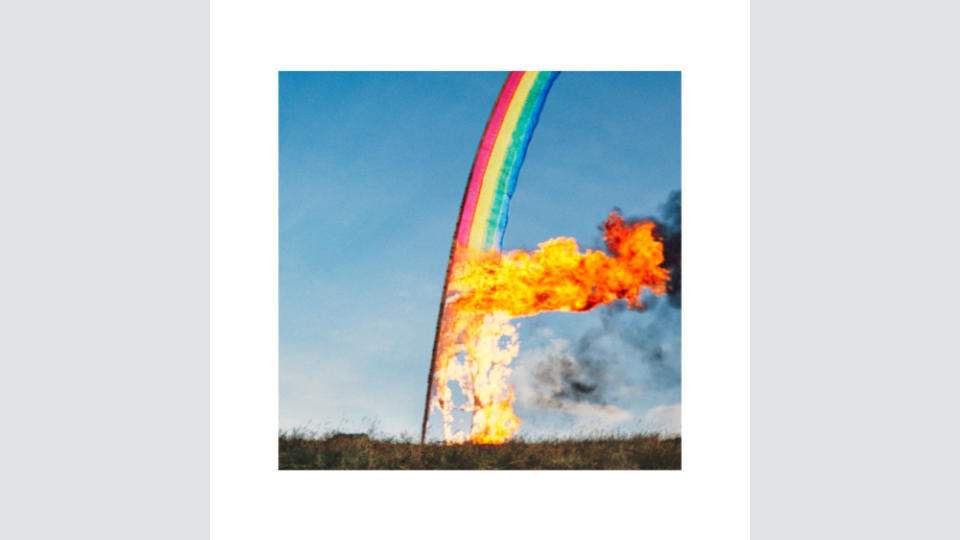
Anyone who’s missed the music of the long-running, otherworldly-sounding Iceland group will find glorious gratification just one minute into this album, when they’re suddenly immersed in one of their most glorious soundbaths to date — a soaring, swelling orchestra with a distant choir-like sound and a backward, sped-up voice flitting wordlessly. Yes, Sigur Ros is back with its first album in a decade, and it’s every bit as ethereal, amorphous and atmospheric as anyone could hope for. The set sprawls across an hour and ten songs, although it’s often hard to tell where one ends and another begins: The group intended the album to be heard in one long stream, and it ebbs and flows like a time-lapse nature video of seasons changing or the sun rising and falling or the tide going in and out on a cloud-speckled beach. —Aswad
Yaeji, ‘With a Hammer’
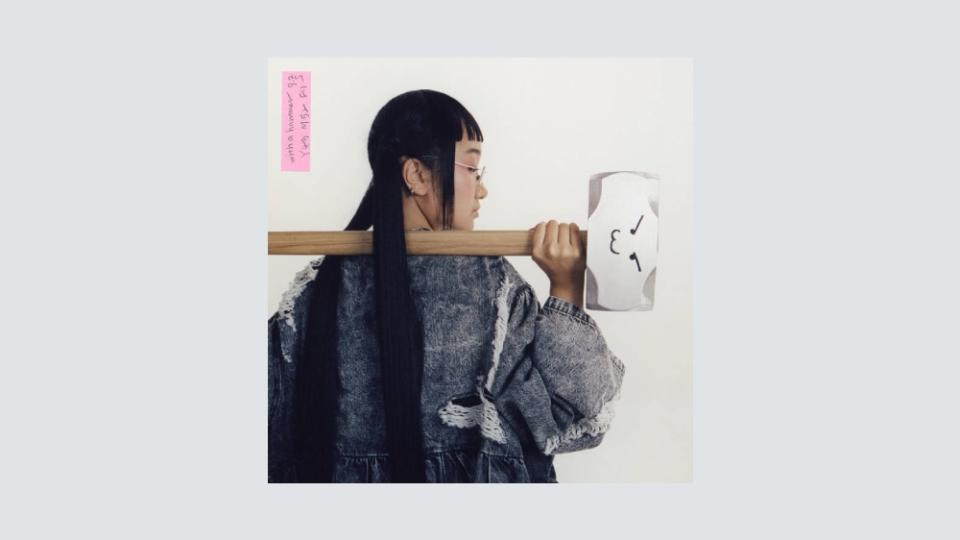
Yaeji’s ambient sounds gained momentum during the rush of lo-fi house music that boomed in the late 2010s. After releasing two back-to-back EPs and numerous singles (including a club remix of Dua Lipa’s “Don’t Start Now”), her debut mixtape in 2020 didn’t give many clues about where she was headed next. A three-year hiatus separated the mixtape from her full-length debut, “With a Hammer,” which finds the New York producer exploring themes of self-identity in her lyrics (“Isn’t it so weird how we learn to pass down what we didn’t want to do?”) with in-your-face instrumentals to match. Spastic drum ’n’ bass, Korean pop and electronica come together to build the perfect soundtrack for midnight outings and the delusions of an early morning comedown. —Garcia
Raye, ‘My 21st Century Blues’
It’s not very often that someone can catalog all the ways they’ve been mistreated in a major-label deal in the music industry and… do it on their debut album. But such is some of the gasoline that fuels the fire of Raye, a 25-year-old talent out of London who just released her first full-length record this year after previously having been signed to a major since 2014 without getting the chance to put one out. That’s not the only thing she’s angry about: The album has songs about being gaslit by suitors as well as label execs, and it extends to some harrowing material about having been drugged and assaulted in her dating life, and — in the No. 1 U.K. hit “Escapism” — how she might have acted out, with substance abuse or bad relationships. She also goes there on other tough topics, like “Body Dysmorphia” (“I hate my arms inside these sleeves / For this hourglass we all desire / I wear three corsets underneath”), or, less personally and more universally, the future itself, in “Environmental Anxiety.” But she’s just hopeful enough to quote Isiah 54: “Without the Lord I’d take my life for all the times I’ve been a victim / Oh, no weapon formed against me shall ever prosper.” Far be it from us to take up such a weapon with a bad review — this is stellar stuff, not just for its real talk but Raye’s deft way with a mixture of R&B, hip-hop and even a bit of her jazz leanings. —Willman
King Krule, ‘Space Heavy’
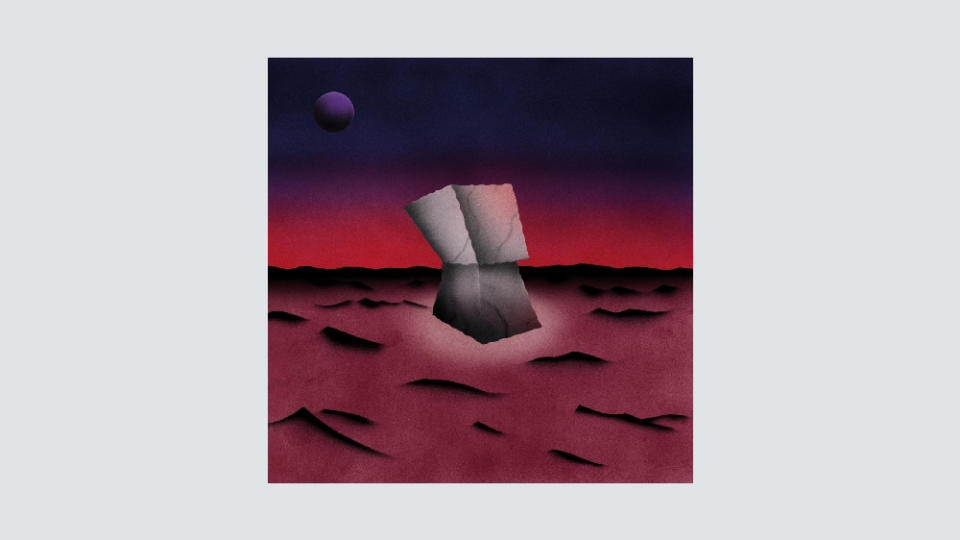
A decade on from his debut album and the ensuing bizarre burst of attention — which found him appearing on “Letterman” before the cover of The Fader — the man born Archy Ivan Moore’s music has reached a level of maturity that makes it more approachable while still following an odd logic all its own. The songs and his deep, gruff voice — a unique mix of John Lydon and Damon Albarn — are gentler and have fewer rough edges than on the earlier records, but they’re still strange: A relatively straightforward song will be ambling along until the tempo suddenly lurches like a ship on rough seas, the smooth riffs become jagged and a sax solo barges in, but then the storm passes and it’s back on its amble. King Krule’s music has always been indie rock through a sort of funny mirror, its hazy mix and downtuned, ultra-reverbed guitars often sounding like a warped record, combining the conventional with the surreal in a way that sometimes resembles British post-punk acts like Josef K or Scars musically. But his vocal style and melodies are completely his own. —Aswad
Sparks, ‘The Girl Is Crying in Her Latte’
When we think of artists who have been at this thing for five decades or more, we tend to consider acts who’ve either long since given themselves over to nostalgia and stasis or, if they have continued to successfully bring out fresh material, have a certain age-appropriate world-weariness to the new stuff. Sparks is not in either position. Fifty-one years into Ron and Russell Mael’s recording career, not only is there pep in their step, you feel like they might live 501 years and still find as much to be bemused about in the world as ever. Or sad or contemplative about in a way that expresses itself as drollery, at least. Coming off of Edgar Wright’s “Sparks Brothers” documentary, for the benefit of potential new fans, the Maels seem to have wanted to make an album that feels like a best-of, rather than something that sticks in one musical lane… and the happy result includes songs like “Nothing Is as Good as They Say It Is,” which harks back more to their guitar-filled mid-’70s records, as well as the minimalistic or arpeggiated-keyboards material you might have expected from latter days. It’s easy to write off songs that have a strong element of humor, as theirs do, as twee, but the best Sparks songs have some straight-faced pain to leaven the smirk — whether it’s in the alone-at-the-party insecurity of “When You Leave” or even an examination of how WWII killed a screen icon’s career in “Veronica Lake.” I’m not crying in my latte, you are. —Willman
Tainy, ‘Data’
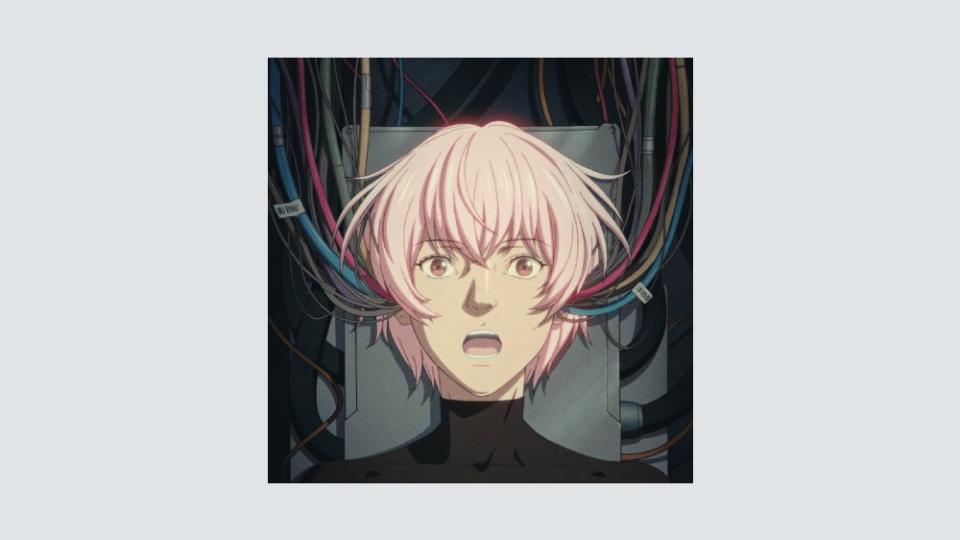
Tainy’s debut album is just 24 hours away from its official release but its merit on this list was more than obvious after the first few listens. Although the Puerto Rican producer has been in the game for years, helming hits for a striking list of reggaeton pioneers, an artist as meticulous and calculated as Tainy had to wait for an element of synergy to conceptualize his own debut. “Data” serves as a testament to his creative history, taking visual inspiration from surrealist Japanese anime, with a stacked feature list that only Tainy’s rolodex could manage: Bad Bunny, J Balvin, Rauw Alejandro, Feid, Daddy Yankee, Arcangel and producers Arca, Skrillex, Four Tet and more. The result is an atmospheric, concept record centered on a cyborg whose “Data” is comprised of 20 tracks that meld elements of old school reggaeton with EDM, hip-hop and more. —Garcia
Water From Your Eyes, ‘Everyone’s Crushed’
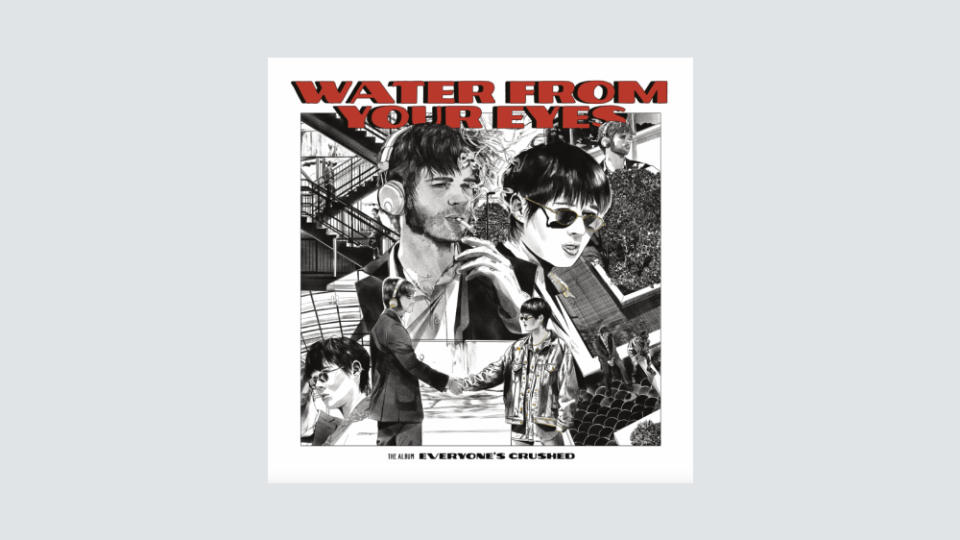
This Brooklyn-via-Chicago’s duo’s fifth or sixth album (it’s hard to tell) is also their most focused and powerful to date. WFYE combines Rachel Brown’s deadpan vocals with sounds, beats and textures that might sound random or found or collaged together, but as the songs progress the rhythms and intricate arrangements become clearer and congeal, if not necessarily resolve — and whenever anything starts to sound even a little conventional, they’ll throw in some arrhythmic element, a pile of extra beats, or just stop everything and unleash serrated guitar riffs or paint-peeling noise. It’s not uncommon for each musical element to seem to be following a different time signature that somehow still manages to be in synch, yet the penultimate track, “14,” is downright pretty, with a jagged string section and a repeated lyric that states, “I’m ready to throw you up.” Equally alluring and forbidding, Water From Your Eyes revels in music that just barely holds together but does — and their continual testing the boundaries of structure (which happens to be the name of not only their previous album but the first song on this one) makes for music that remains surprising even after several listens. —Aswad
Best of Variety

